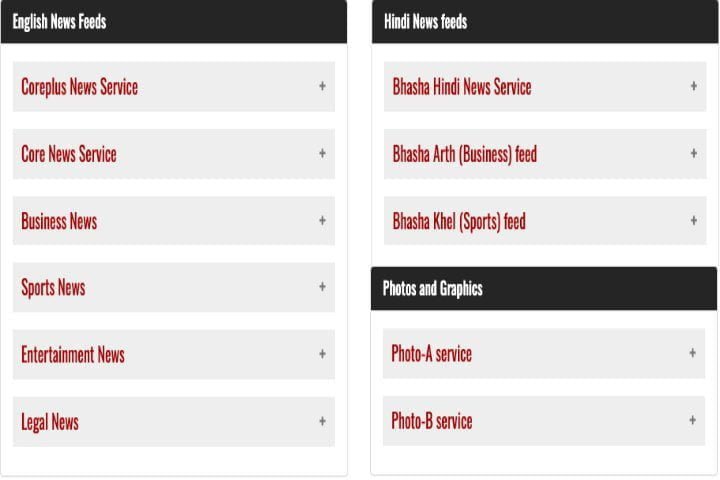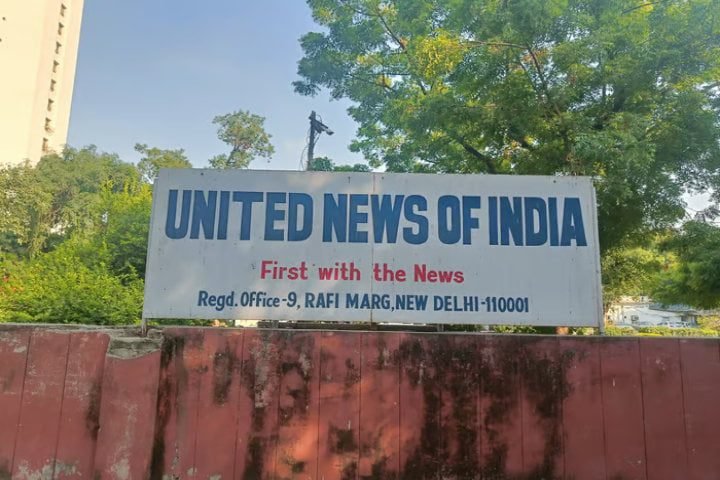News agencies are organizations that gather and distribute news to a wide range of media outlets, such as newspapers, magazines, television, and radio stations. They also offer a variety of news services, including text, photo, video, and audio. They play an important role in informing the public about current events and providing a platform for different perspectives to be heard. Indian news agencies are part of India’s rich and diverse mass media landscape, playing a vital role in the news ecosystem.
The major Indian news agencies
- Press Trust of India (PTI)
- Bhasa: Hindi Language Service of PTI
- United News of India (UNI)
- Univarta: Hindi Language Service of UNI
- Asian News International (ANI)
- Indo-Asian News Service (IANS)
- Hindustan Samachar

These agencies have a vast network of correspondents across the country and abroad, and they provide news coverage in various languages, including English, Hindi, and other regional languages. They also offer various news services, including text, photo, video, and audio. News agencies also play an important role in promoting democracy and transparency. They hold the government and other powerful institutions accountable by investigating and reporting corruption, abuse of power, and other wrongdoing. They give a voice to the marginalized and the voiceless.
Press Trust of India (PTI)
The Press Trust of India (PTI) is a not-for-profit, private limited company owned by a group of Indian newspapers, which are also its subscribers. PTI is self-funded through its source(s) of revenue, which is the subscription model for news dissemination. PTI earns its revenue from licensing content to its hundreds of subscribers, comprising newspapers, TV broadcasters, websites, mobile apps, and other clients.
PTI is India’s premier news agency, with a reach that covers every corner of India. It employs more than 600 journalists and 800 stringers to cover almost every city and small town in India.
PTI claims to send over 1,000 text stories, about 100 live videos, about 150 raw video stories, more than 20 voiced video stories, and 250 photographs, including graphics, every day to its diverse subscribers, including the mainstream media, specialized presses, research groups, companies, and government and non-governmental organizations.

PTI correspondents are also based in leading capitals and influential business and administrative centers worldwide. To magnify its global news footprint, PTI has exchange arrangements with several foreign news agencies. Currently, PTI commands 90 percent of the new agency market share in India.
PTI was registered in 1947 and started functioning in 1949. A Board of Directors oversees PTI, with the Chairmanship rotating at the Annual General Meeting. The CEO, also the Editor-in-Chief, is in charge of PTI’s day-to-day management and administration. Its board of directors includes the owner and editor of most of the leading publications in India.
As of September 2023, Aveek Sarkar is Chairman of the Board of Press Trust of India.
PTI Fact Check
It is a dedicated fact-checking unit within the editorial department of PTI. PTI’s general news budget funds the PTI Fact Check team. PTI does not accept donations from any political party.
Bhasa: Hindi Language Service of PTI
Through its Hindi language service, Bhasha, PTI provides detailed coverage of all events around the country and the world. Bhasha claims to produce 400+ stories per day and covers categories such as national, international, business, sports, entertainment, and legal.
United News of India (UNI)

UNI started its commercial operations on March 21, 1961. It has news bureaus in all state capitals and other major cities. The agency also has representatives in key world capitals.
The agency’s subscribers include newspapers published in 14 languages, AIR, Doordarshan, the Central and State governments, corporate and commercial houses, and electronic and web-based media.
UNI also pioneered a national news photo service in 1987.
UNI has been the first and only news agency in the world to supply news in Urdu since June 5, 1992.
Univarta: Hindi Language Service of UNI
UNI was the first to start a multi-language news service, UNIVARTA, on May 1, 1982. It provides news services to Hindi newspapers and media organizations, providing a comprehensive package of national, international, regional, sports, and commercial news in their language of publication.
Asian News International (ANI)

ANI is South Asia’s leading multimedia news agency, with over 100 bureaus in India, South Asia, and across the globe.
ANI has established itself as a ‘complete content house, providing text, video, and picture content for TV, print, mobile, and online media.
ANI also provides a range of facilities for foreign and domestic channels to package their reports in India and uplink via satellite. These include the provision of professional crews, editing and post-production facilities, access to archives, uplinking facilities, coordinators, producers, and correspondents, as per requirement.
ANI services include loosely edited news feeds and customized programs for television channels, audio bytes for radio stations, live web casting and streamed multimedia and text content for websites and mobile carriers, and news wire services for newspapers, magazines, and websites.
Indo-Asian News Service (IANS)
IANS was established in 1986, initially to serve as an information bridge between India and its diaspora in North America. Today, it is a full-fledged, 24/7 agency based in Delhi-NCR (Noida), putting out real-time news from India, South Asia, and this region around the world.
Its client list includes a range of print publications, television news channels, websites, ethnic publications abroad, government ministries, foreign missions, private sector players, and multilateral institutions.
IANS is divided into six business verticals: IANS News Service (English & Hindi), IANS Multimedia, IANS Publishing, IANS Media Consultancy, IANS Software Services, and IANS Mobile Services.
Sandeep Bamzai is the current MD, CEO, and editor-in-chief of IANS.
Hindustan Samachar
The Hindusthan Samachar was formed on December 1, 1948, as a co-operative society. It provides news in 14 Indian languages. Its subscribers include AIR, Doordarshan, various state governments, Nepal Radio, and several regional papers.
Presently, the service is being provided in Hindi, Marathi, Gujarati, Nepali, Oriya, Asamiya, Kannada, Tamil, Malayalam, Telugu, Sindhi, Sanskrit, Punjabi, and Bangla. They have 22 bureaus in various states of India.
Indian News Agencies Challenges
These agencies collectively form the backbone of India’s media landscape, connecting diverse regions and languages while facilitating the flow of information across the nation and beyond. Their commitment to timely and accurate news remains a cornerstone of informed journalism in India, reinforcing their indispensable role in the country’s media ecosystem.
Indian news agencies are grappling with multiple challenges in today’s media landscape:
Competition from Foreign News Agencies
Indian news agencies face stiff competition from well-established international counterparts. These foreign agencies often have larger budgets, more extensive networks, and advanced technologies, allowing them to provide comprehensive global coverage. This competition pressures Indian agencies to maintain their relevance and market share.
Rising Costs of Operations
The operational expenses for news agencies have been steadily increasing. This includes costs associated with:
- Maintaining a network of reporters and correspondents
- Investing in modern technology and equipment
- Ensuring secure and fast data transmission
- Training staff to adapt to evolving media landscapes
These rising costs pose significant financial challenges for Indian news agencies, especially smaller ones with limited resources.
The Spread of Misinformation and Disinformation
Perhaps the most pressing challenge is the proliferation of false or misleading information. In the age of social media and instant communication, misinformation can spread rapidly, making it difficult for news agencies to:
- Verify information quickly and accurately
- Maintain public trust in their reporting
- Combat the spread of fake news
This challenge requires news agencies to invest in fact-checking mechanisms and to educate their audience about the importance of reliable news sources. Addressing these challenges is crucial for Indian news agencies to remain competitive, financially viable, and trusted sources of information in the digital age.





Thank so much for sharing all this info with us. Your writing style is really engaging. I am going to bookmark the site for further assistance.
This post offers a fantastic overview of Indian news agencies! I appreciate how you highlighted the diversity and reach of these sources. It’s interesting to see how they not only serve India but also have a significant impact globally. Keep up the great work!
This article provides an insightful overview of the prominent news agencies in India. I appreciate the depth of analysis and the inclusion of how these agencies shape public opinion and media narratives. It’s interesting to see how traditional sources are adapting in the digital age. Looking forward to more posts like this!
This post provides a great overview of the key Indian news agencies! It’s interesting to see how these platforms shape public opinion and information dissemination both in India and globally. I appreciate the insights into their evolution and impact on the media landscape. Keep up the good work!